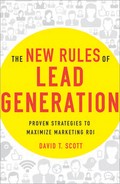Choosing Your Keywords
You should know which keywords your target audience is most likely to use when searching for your types of products or services. Before creating your SEM ads, make a list of all the relevant search terms that you think your potential customer might use in a Web search.
The SEM ad platforms on Google and Bing provide keyword tools that suggest keywords and phrases, based on your initial inputs and on actual historical search results. In the campaign setup phase, when you start to enter keywords (e.g., “security cameras”), the keyword tools give you a list of additional popular search keywords and phrases that people use when searching for that type of product or service (e.g., “security systems,” “business security systems,” “business surveillance systems,” etc.). Using and bidding on these keywords and phrases allows your SEM ad to appear in a broader range of search results, and allows more search engine users to see the ad.
The number of search keywords you use for a particular SEM ad is limited only by your total budget for PPC rates and by how high you’re willing to bid on each keyword. You can attach a thousand keywords and/or phrases to a single ad if you have the budget to bid for that number. In general, the more keywords you bid for, the more your SEM ad will appear in search results, and the better the response to the ad will be.
General keywords tend to command higher PPC rates, because more SEM ads are competing for those search terms. But specific search terms tend to command lower rates, because not every advertiser is bidding for those particular keyword combinations. Therefore, the more specific you get with your keywords and phrases, the lower the PPC rates will be for them, and the lower your bids will need to be.
Specific keyword phrases are called long-tail keywords. The longer they are, the more specific they are. The greater the specification, the greater success you will have in attracting potential customers who search specifically for what you offer.
For example, say you are a real estate company in Seattle that specializes in office space and commercial real estate. If you bid on the keywords “office space,” “office Realtor,” and “commercial real estate,” you might need to bid a very high PPC rate (e.g., $4.50 per click) to get your SEM ad displayed in search results for those keywords. Your SEM ad may be competing with ads from hundreds of other office Realtors who are bidding on those same keywords.
However, if you bid on the keywords “office space in Seattle” or “commercial real estate in Seattle,” you’ve narrowed the focus of your target audience to people who are looking for office space in the Seattle area. You can probably bid a lower PPC rate (e.g., $2.50 per click) for these terms. But you will still be competing with other office Realtors in Seattle who are bidding PPC rates to get their SEM ads placed in the search results for these terms.
But let’s imagine that your commercial real estate firm specializes in office space for medical and dental practitioners in the Seattle area. If you bid a PPC rate for keywords like “medical office space in Seattle” and “dental office space in Seattle,” you may pay an even lower rate (e.g., $1.00 per click). Not as many commercial real estate firms handle medical and dental office space, and therefore not as many firms will be bidding for these keywords.
Don’t be afraid to be very specific. When you use long-tail keywords such as “medical office space in Seattle,” each keyword you include in the phrase will help to match your SEM ad to a search term used by a potential customer. This allows your SEM ad to rank higher in search results when the customer keys in that specific search term. This is key to making sure your ad appears to the most qualified customers.
Also, the more you specify keyword phrases, the lower your PPC bids will need to be. For example, you may decide to bid on keyword phrases that specify certain cities or districts within the Seattle metropolitan area (e.g., “medical office space in Green Lake,” “medical office space in Bellevue,” “medical office space on Bainbridge Island”). These phrases might require a PPC bid rate of just 50¢ per click because, again, not as many commercial real estate companies will be competing for these phrases.
If you wish, you can also bid on related keyword phrases to give your SEM ad additional exposure. For example, you might bid on the phrases “medical equipment supplies in Seattle” or “dental equipment supplies in Seattle.” Medical and dental practitioners often search for these terms, so your SEM ad for “medical or dental office space in Seattle” will still reach your target audience when it appears in the search results for these terms.
But while the bid certainly matters in how the search engines place your SEM ad, so does the relevancy of the ad. Search engines will sometimes put lower-bidding ads above higher-bidding ones if the lower-bidding ads are more relevant. So if a customer is searching for “medical equipment supplies,” a medical equipment ad will probably be served before your medical office real estate ad, even if your ad is paying more money.
One more thing: The Google and Bing setup processes give you the option to exclude certain keywords, so your SEM ad won’t show up in search results when people search for those terms. For example, suppose your Seattle commercial real estate firm does not sell retail space or restaurant space. In that case, you can enter “NOT: retail” and “NOT: restaurant,” using the keyword selection tool. Anyone searching for retail or restaurant space in Seattle will not see your ad.
